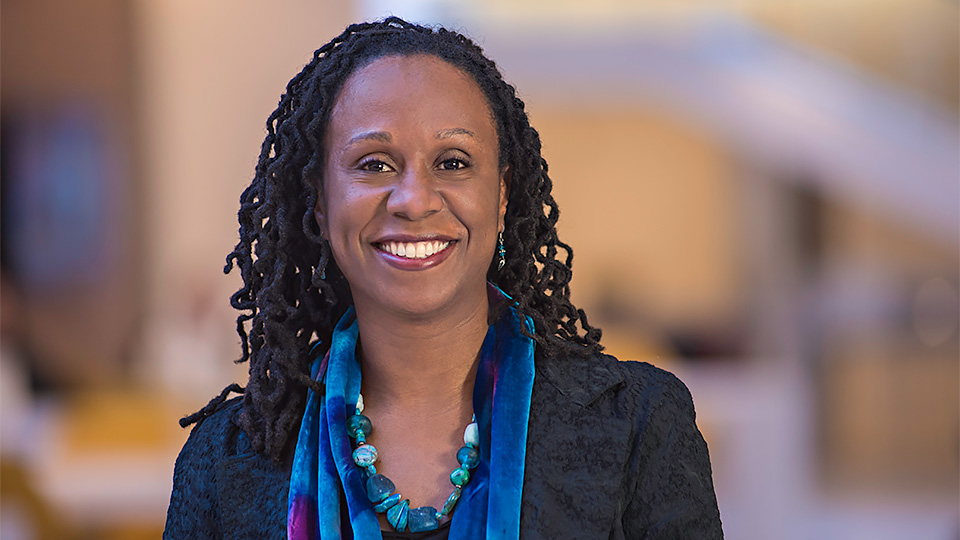Message from Dean Nelson to the WCL Community
June 1, 2020
Dear WCL Community,

The times in which we find ourselves call for self-reflection and what Dr. Martin Luther King Jr. referred to as self-purification. For many people, watching the public killing of George Floyd was the straw that broke the camel’s back. Trouble is, that back has been broken again and again, and yet we are still hopeful for a better day.
We are already struggling with the coronavirus and the havoc disparately wrought by its sequelae. We should be in a moment of national healing, but we are not there yet, not with the disease that is COVID-19, nor the disease that is racism. We must find a cure for both so that this nation can finally heal and actualize our highest ideals.
I want to believe that optimism is not misplaced. Right now, however, many people are on an emotional roller coaster, oscillating between sadness, fear, and anger. Through our various feeds we have seen too many people die - shot, tased, asphyxiated. While I cannot unsee, and I want to bear witness to their suffering and to say all of their many names, I also know that this state of affairs is not normal. Indeed, it is dysfunctional and unhealthy for our hearts, minds, and spirits; the abuse and violence is vicariously traumatic and is wreaking destruction near and far.
Professor Ruth Wilson Gilmore stated, “Racism... is the state-sanctioned or extralegal production and exploitation of group-differentiated vulnerability to premature death.” Tragically, we are experiencing the reality of that disparate vulnerability in communities of color and Native American communities throughout our country, both from the ravages of the coronavirus, and from our failures to adequately address virulent and violent racism.
Each of us will work through these dynamics differently, hopefully respectfully and supportively, mindful of each other’s needs in this time of crisis. It is a time to take stock. As Nelson Mandela said “... the first thing is to be honest with yourself. You can never have an impact on society if you have not changed yourself... Great peacemakers are all people of integrity, of honesty, [and] humility.”
So while many of us are grieving and recognize that there are stages of grief, I urge us not to pass through to a state of acceptance. We can and must do better than the persistent ‘isms’, phobias, and biases that pervade our world. To accept a status quo reminiscent of a bygone era of impunity-fortified racial violence does not advance us individually, as a community, or as a nation.
We must emerge from this historic moment stronger and fortified in our collective determination to use our gifts, talents, and skills to further justice, fairness, and equity. As Dr. Martin Luther King Jr. penned in his Letter from a Birmingham Jail, “... I am cognizant of the interrelatedness of all communities and states... Injustice anywhere is a threat to justice everywhere. We are caught in an inescapable network of mutuality, tied in a single garment of destiny.” As in 1963, we must embrace our shared reality, our mutuality, and acknowledge that unless all of us can breathe, all of us suffer. In this moment, we should draw strength from Malala Yousafzai’s example in “... raising our voice[s] not so that we can shout, but so that those without a voice can be heard.” We must push ourselves to speak out against injustice in spaces where it might be uncomfortable, for it is in those spaces that our speech has the potential to be most impactful.
For the WCL community, that exhortation underscores our commitment to “Champion What Matters.” When we can and where we are, we must work to make the nation, and our world, more just, fair, equitable, and inclusive for all. We can use our authentic voices to affirm human rights and our shared interrelated humanity.
Our community is well-equipped to speak about, advocate for, and thoughtfully craft and support the positive transformation of our society in furtherance of justice. At times of societal crisis lawyers have always pushed us toward something better, toward justice. We have the power and obligation to follow suit. It is our collective calling, as Mahatma Gandhi said, to “be the change that you wish to see in the world.” We can work for and lead that change in ways that exemplify the best of who we are, together.
Be well,
Camille A. Nelson